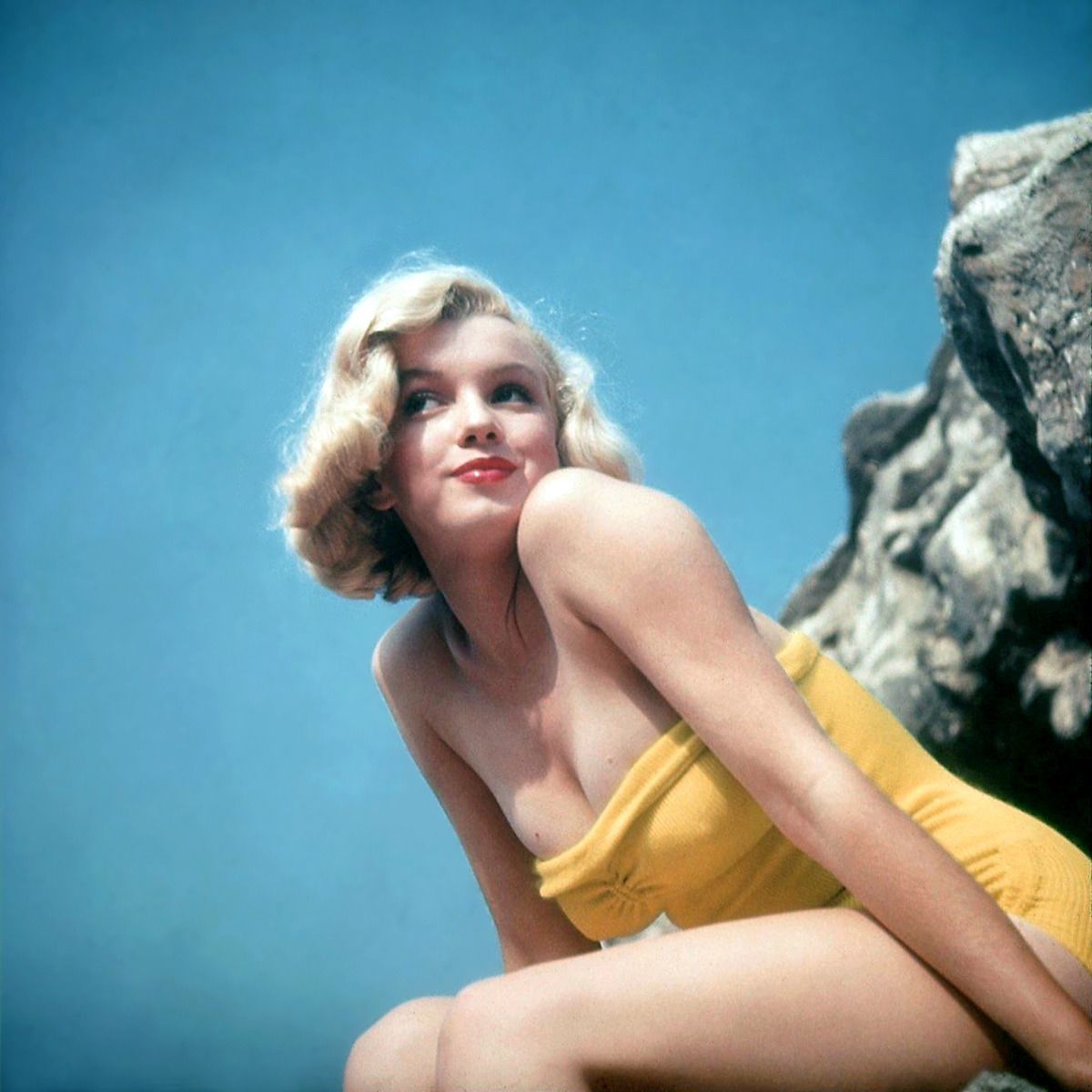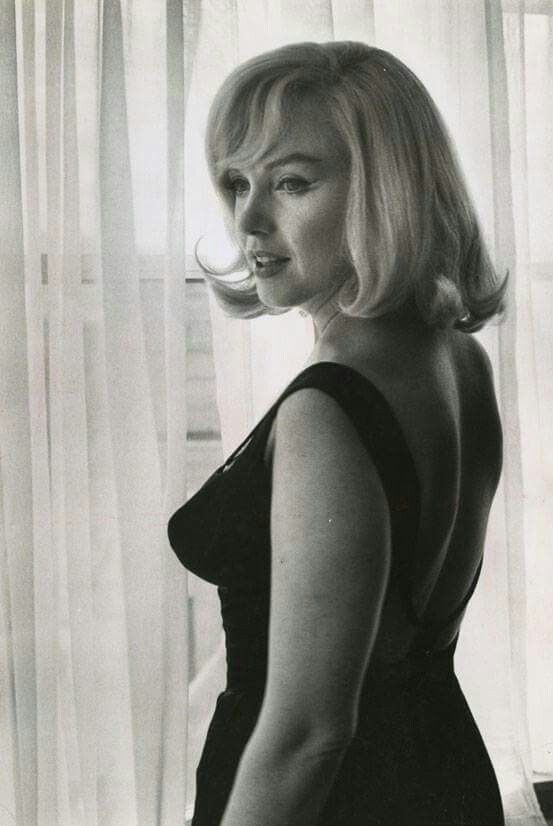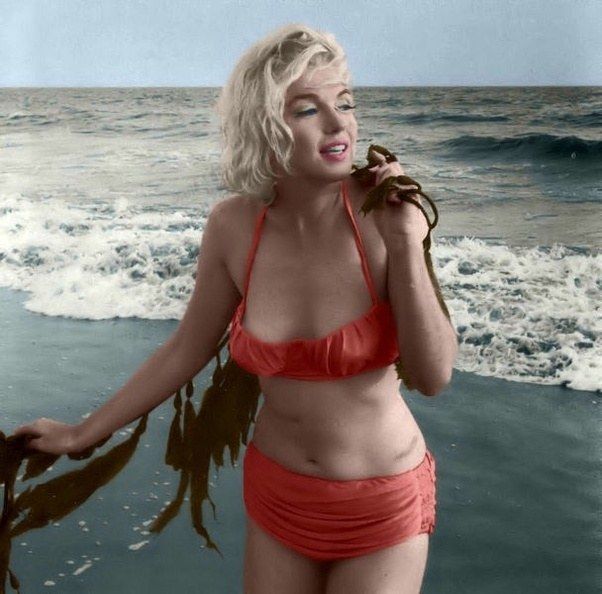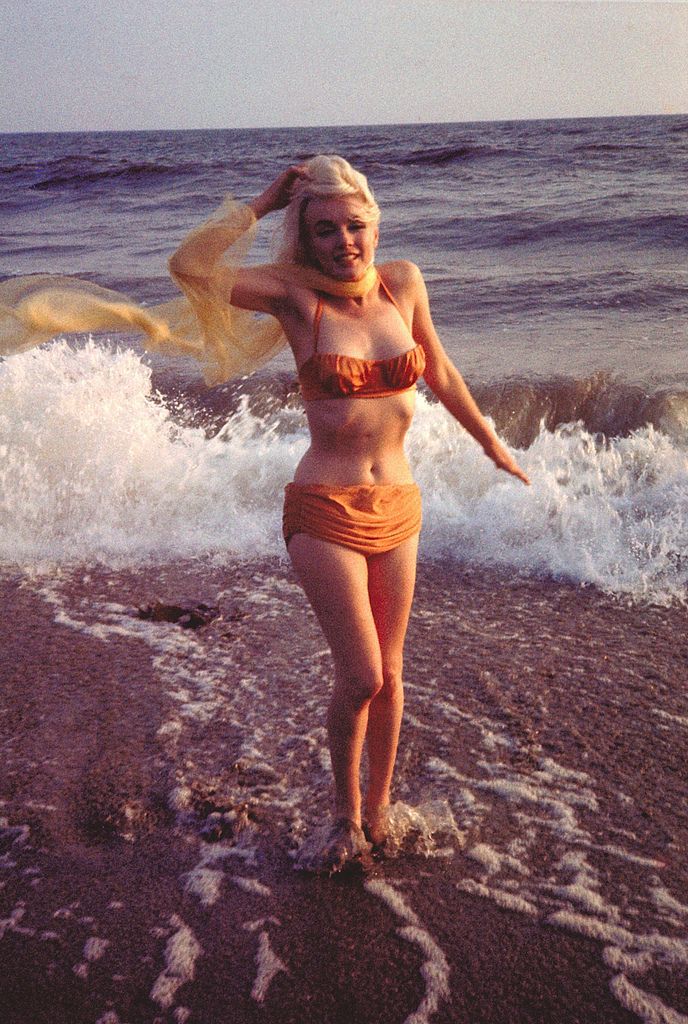There are faces in the history of Hollywood cinema that seem carved not by time but by eternity itself. Among them, none radiates as powerfully, as tenderly, and as tragically as Marilyn Monroe. Her beauty was not merely physical—it was an aura, a mystery, a turning point that redefined how the world saw women, fame, and vulnerability. To speak of Marilyn Monroe is not simply to recall a film actress. It is to tell the story of a woman who turned her own fragile heart into a gift for the world of motion pictures, a woman whose beauty became both her blessing and her curse.

Born Norma Jeane Mortenson in 1926, she entered life already marked by instability. Her father vanished before she could know him, her mother’s mind fractured into illness, and so she was passed through foster homes and orphanages like a child no one claimed. Yet even then, there was something luminous about her—a light unbroken by abandonment. When the camera first caught her, it did not just see a girl; it saw a possibility. In the transformation from Norma Jeane to Marilyn Monroe, the world witnessed not just the creation of a star, but the rebirth of beauty itself in the language of cinema.

Her beauty was a revolution. At a time when postwar America longed for optimism, glamour, and distraction, Marilyn appeared like a vision of hope. With platinum hair that shimmered under studio lights, eyes that carried both innocence and seduction, and a smile that seemed to forgive the world its sins, she became the face of a new era of movies. She was not just attractive—she was magnetic, the embodiment of desire and the whisper of sadness hidden in every glance.
It was beauty that made her a global icon, but it was also beauty that trapped her. Hollywood saw her first as a commodity, a kind of credit card that could guarantee box office success. Executives cast her as the dumb blonde, the comic seductress, the dream girl in films like Gentlemen Prefer Blondes, The Seven Year Itch, and Some Like It Hot. Audiences adored her, critics debated her, but few stopped to wonder if Marilyn Monroe wanted more. And she did. She longed to be recognized not only for her beauty but for her artistry, not just for her face but for her soul.
That longing took her to the Actors Studio in New York, where under Lee Strasberg she studied the depths of method acting. Here was the fragile goddess among hardened artists, stripping away glamour to expose the raw ache of human truth. In Bus Stop and The Misfits, Marilyn revealed herself as more than a starlet—she was an actress of courage, turning her own wounds into art. The world began to see what she had always known: that her beauty was not skin-deep. It was a mirror of longing, resilience, and hope.

Yet beauty is both a crown and a cross. For Marilyn, it invited love but rarely stability. Men adored her but often reduced her to an image, never fully embracing the woman beneath the myth. Her marriages to Joe DiMaggio and Arthur Miller became tales of hope and heartbreak. With DiMaggio, she was cherished but caged by jealousy. With Miller, she sought intellect and soul, only to discover disappointment. Love for Marilyn was always intense, always radiant, but never lasting. Like the roles she played, her romances flickered brightly before dissolving into shadow.

In private, the very face that captivated millions often stared back at her in loneliness. Beauty could open every door but could not silence the fears that haunted her nights. Pills lined her bedside, not as luxuries but as lifelines: one for sleep, one for waking, one for easing the unending ache of emptiness. Fame had given her everything—wealth, houses, recognition, invitations, even the power to sway entire industries like fashion, advertising, and insurance or credit card companies that borrowed her image for prestige. Yet it withheld the one thing she had sought since childhood: unconditional love.
On August 5, 1962, the dream ended. Marilyn Monroe was found in her Brentwood home, her life cut short at just thirty-six. The news stunned the world. How could the woman who embodied vitality, seduction, and beauty beyond words simply vanish? The tragedy was more than the loss of a Hollywood star—it was the shattering of a symbol of hope, a reminder that even the most beautiful among us carry invisible wounds.
Her death was surrounded by rumors—overdose, accident, conspiracy. None of the theories erased the sorrow. Marilyn Monroe’s passing became one of the most heartbreaking chapters in the history of motion pictures. The world had not only lost an actress; it had lost its brightest dreamer.

And yet, like all great heroines, she never truly disappeared. Her films live on, preserved on streaming platforms, watched by new generations who still marvel at her radiance. Scholars dissect her career in online courses on cinema and performance. Historians speak of her as a symbol of postwar America, while industries from law firms and mortgage services to hosting providers continue to use her timeless image as shorthand for beauty and aspiration.
But Marilyn Monroe’s legacy is not found in marketing. It is found in the eyes of every young woman who dares to believe that beauty can be more than a mask—that it can be a vessel for truth, courage, and humanity. Her beauty marked a turning point in the history of cinema because it forced the world to confront the paradox: that behind the most dazzling faces often lies the deepest sorrow.
Marilyn Monroe’s life was a tragic hero’s journey. She rose from abandonment to fame, from Norma Jeane to global icon. She battled her demons as bravely as any mythic warrior, even if the battlefield was her own heart. She gave the world laughter, desire, and unforgettable beauty, even as she struggled to find peace for herself.

To this day, her smile still lights up the silver screen, her eyes still draw us into their mysterious depths, and her beauty continues to inspire awe. But the true reason we remember her is not just because she was beautiful—it is because she showed us that beauty is fragile, fleeting, and human. She reminds us that even goddesses are mortal, and that the most radiant faces can also be the ones that cry in the dark.
Marilyn Monroe did not simply mark a turning point in cinema. She marked a turning point in the way we see beauty, love, and loss. She remains immortal not because she was perfect, but because she was painfully, achingly human. And that humanity, wrapped in radiance, will never fade.



